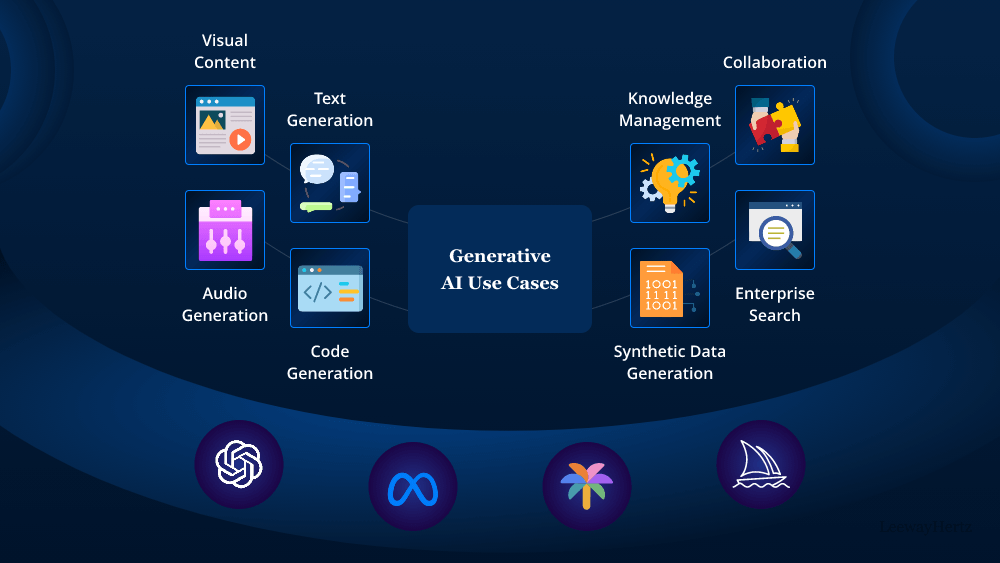Generative AI: Use cases, applications, solutions and implementation
Generative AI demonstrates versatile applications across diverse industries, leveraging its capacity to create novel content, simulate human behavior, and generate innovative outputs based on learned patterns.


Generative AI for Regulatory Compliance: Benefits, integration approaches, use cases, best practices, and future trends
Generative AI is reshaping the field of regulatory compliance by enhancing risk management, boosting operational efficiency, and improving compliance monitoring.

Generative AI for marketing: Overview, use cases, integration strategies, and future outlook
Generative AI is transforming the marketing landscape by enhancing content creation, customer interaction, and data analysis.

Generative AI in due diligence: Integration approaches, use cases, challenges and future outlook
Generative AI is reshaping the due diligence landscape, establishing new data analysis and processing benchmarks.

Generative AI for legal operations: Overview, use cases, integration strategies, and future outlook
GenAI is transforming the legal sector by boosting efficiency, lowering costs, and enabling legal professionals to focus on high-priority tasks.

GenAI for sales: Implementation approaches, use cases, challenges and best practices and future trends
Explore how generative AI in sales boosts lead generation, engagement, proposal creation, and performance tracking for more efficient sales operations.

Generative AI for IT: Integration approaches, use cases, challenges, ROI evaluation and future outlook
GenAI automates repetitive IT tasks, reducing operational costs and reallocating resources toward strategic projects that drive organizational growth.

GenAI for technical support L1, L2 and L3: Use cases across support levels, challenges, and future outlook
GenAI is reshaping technical support into a more responsive and effective system by streamlining workflows and enhancing service delivery.

Generative AI for financial reporting: Key use cases, benefits, integration, and future outlook
Generative AI is reshaping financial reporting by automating complex tasks, enhancing decision-making, and improving overall efficiency

Gen AI in HR operations: Overview, use cases, challenges and future trends
The integration of generative AI has the potential to reshape HR processes, improve personalization, optimize recruitment, and enhance employee satisfaction.

Generative AI in corporate accounting: Integration, use cases, challenges, ROI evaluation, and future outlook
Incorporating generative AI into corporate accounting transforms workflow processes, promoting efficiency and accuracy while allowing professionals to concentrate on more strategic and advisory roles.

Generative AI use cases for manufacturing: Approaches, use cases and future outlook
Generative AI transforms manufacturing by streamlining operations, fostering innovation, and enabling personalized production.

Generative AI in customer service: Integration approaches, use cases, best practices and future outlook
Generative AI transforms customer service operations through innovative solutions that enhance workflow efficiency and significantly elevate the customer experience.



